kiminitodokestuff
English. Anime. Manga. Japan. Writing. Reading. Sleeping.
113 posts
Latest Posts by kiminitodokestuff


Some gift drawings which I drew a bit ago. Top one was done for my friend @clouds-and-stardust and bottom one for @clawed50. Done with black pen and Tria marker.
HELLO I JUST FOUND THE BEST FUCKING WEBSITE FOR WORKING ON CHARACTERS AND WORLD BUILDING YEET FUCKERS SEE YOU IN 8 YEARS
Recognizing emotionally mature people
Taken from Adult Children of Emotionally Immature Parents by Lindsay C. Gibson, Psy.D. A summary of the tips the book hands you on how to recognize emotionally healthy people.
They’re realistic and reliable
They work with reality rather than fighting it. They see problems and try to fix them, instead of overreacting with a fixation on how things should be.
They can feel and think at the same time. The ability to think even when upset makes an emotionally mature person someone you can reason with. They don’t lose their ability to see another perspective just because they aren’t getting what they want.
Their consistency makes them reliable. Because they have an integrated sense of self, they usually won’t surprise you with unexpected inconsistencies.
They don’t take everything personally. They can laugh at themselves and their foibles. They’re realistic enough to not feel unloved just because you made a mistake.
They’re respectful and reciprocal
They respect your boundaries. They’re looking for connection and closeness, not intrusion, control or enmeshment. They respect your individuality and that others have the final say on what their motivations are. They may tell you how they feel about what you did, but they don’t pretend to know you better than you know yourself.
They give back. They don’t like taking advantage of people, nor do they like the feeling of being used.
They are flexible and compromise well. Because collaborative, mature people don’t have an agenda to win at all costs, you won’t feel like you’re being taken advantage of. Compromise doesn’t mean mutual sacrifice; it means a mutual balancing of desires. They care about how you feel and don’t want to leave you feeling unsatisfied.
They’re even-tempered. They don’t sulk or pout for long periods of time or make you walk on eggshells. When angered, they will usually tell you what’s wrong and ask you to do things differently. They’re willing to take the initiative to bring conflict to a close.
They are willing to be influenced. They don’t feel threatened when other people see things differently, nor are they afraid of seeming weak if they don’t know something. They may not agree, but they’ll try to understand your point of view.
They’re truthful. They understand why you’re upset if they lie or give you a false impression.
They apologize and make amends. They want to be responsible for their own behavior and are willing to apologize when needed.
They’re responsive
Their empathy makes you feel safe. Along with self-awareness, empathy is the soul of emotional intelligence.
They make you feel seen and understood. Their behavior reflects their desire to really get to know you, rather than looking for you to mirror them. They aren’t afraid of your emotions and don’t tell you that you should be feeling some other way.
They like to comfort and be comforted. They are sympathetic and know how crucial friendly support can be.
They reflect on their actions and try to change. They clearly understand how people affect each other emotionally. They take you seriously if you tell them about a behavior of theirs that makes you uncomfortable. They’ll remain aware of the issue and demonstrate follow-through in their attempts to change.
They can laugh and be playful. Laughter is a form of egalitarian play between people and reflects an ability to relinquish control and follow someone else’s lead.
They’re enjoyable to be around. They aren’t always happy, but for the most part they seem able to generate their own good feelings and enjoy life.
– © Adult Children of Emotionally Immature Parents, Lindsay C. Gibson, Psy.D.

To other people, it sometimes seems like nothing at all. You are walking around with your head on fire and no one can see the flames.
Matt Haig, Reasons to Stay Alive (via studyandcry)

I really think the world could use some light and positivity today. I have no words for all the tragedies occurring around the globe, so please have this positive bunny instead. 💛
Patreon | Webtoon | Instagram
So there's this dude I've been friends with. Well, not anymore, he straight-out went mute and blocked me a week or two ago. I kinda have a feeling why, but he didn't explain it to me since... you know... he didn't type a word to me.
Besides all the mindfuckery and madness this caused, the biggest problem to me is that I think I might be in love with him. I'm not sure if this is what you call it.
He made me want to be better, I want to move in together with him ever since we brought it up and he was like 'ye sure why not', even more after he visited me... I keep on being reminded of him, I keep on wanting to talk to him, get to know his beloveds and all...
I hope I'm just confused again, like before.




source
My dog Chica had a nightmare last night. She doesn’t have them very often but when she does she’ll let out this adorable little howl that startles herself awake. She was a little shaken up about it but after a few snuggles in the hooman bed (usually off limits for doggos) she was happy as can be. After a while she hopped down to her own bed and drifted off into a peaceful pupper snooze. And I thought that was the end of it.
But I had a nightmare too. Now that’s not entirely uncommon, I have them fairly often and they’re something that I’ve gotten used to. But this one was a bad one.
The bad ones are the ones that I don’t wake up from. They’re the ones where my friends or loved ones are hurt in front of me and the only thing I can do is watch and cry and scream in the mad hope that it’s all just some terrible dream. Nothing ever happens to me in these dreams so I’m trapped within until I wake up of my own accord. But tonight was different.
Tonight, I felt something lick my hand and woke up in a cold sweat. There on the side of my bed was Chica, licking my hand and looking up at me with concern. Now I’m not sure how much a dog understands about nightmares and dreams and such, but she’s never woken me up from a nightmare before. I’d like to think that some part of her recognized what I was going through and she just wanted to wake me up to protect me from the scary monsters. I have never been more grateful to have Chica by my side than in that moment.
So I let her hop up on the hooman bed (twice in one night, oh boy!) and after a few snuggles I was happy as can be.

Would anyone be interested in baby triceratops enamel pins? 〜(°▽ °〜) Y’en a qui seraient intéressés par des pins en métal de bébé tricératops?



as requested by quite a few people - a masterpost of educational podcasts. links go to either the site or the itunes podcast store. an excerpt of the description is included with each.
* indicates a podcast that i listen to regularly
entertainment
*welcome to night vale - twice-monthly updates for the small desert town of night vale
*muggle cast - everything harry potter
general information
radiolab - investigation told through sounds and stories, and centered around one big idea
*stuff you should know - about everything from genes to the galapagos
*stuff mom never told you - the business of being women
tedtalks
good job, brain - part pub quiz show, part offbeat news
news
no one knows anything - the politics podcast from buzzfeed news
wait wait…don’t tell me - weekly current events quiz
college
*college info geek - the strategies and tactics the best students use
*getting in - your college admissions companion
math
math for primates - a couple of monkeys who decided that arguing about mathematics was a better use of their time than throwing poo at one another
math mutation - fun, interesting, or just plain weird corners of mathematics
science
60 second health - latest health and medical news
the naked scientists - interviews with top scientists, hands-on science experiments
60 second science - the most interesting developments in the world of science
startalk - astronomy, physics, and everything else about life in the universe
nasa science cast - science behind discoveries on earth, the solar system, and beyond
history
*myths and legends - myths, legends, and folklore that have shaped cultures
stuff you missed in history class - the greatest and strangest stuff you missed
the podcast history of our world - from the big bang to the modern age! …eventually
witness - the story of our times told by the people who were there
the history chicks - two women. half the population. several thousands years of history.
entrepreneurship & finances
practical money matters - better managing their finances
the internet business mastery - learn how to create an internet based business
social triggers insider - the fields of psychology and human behavior
listen money matters - honest and uncensored, this is not your father’s boring finance show
writing & literature
professional book nerds - it’s our job to discuss books all day long
a way with words - words, language, and how we use them
grammar girl - short, friendly tips to improve your writing
classic poetry aloud - recordings of the greats poems of the past
language
esl (english) - improve english speaking and listening skills
language pod
coffee break
search in your podcast app for specific languages!
art
99% invisible - exploration of the process and power of design
tips and tricks photography
the arts roundtable
hobbies & other
stash & burn (knitting)
practical defense - staying safe in our increasingly dangerous urban environments
zen and the art of triathlon - a triathlete’s view on living the multisport life
the art of charm - make you a better networker, connecter, and thinker
the indoor kids - isn’t just about video games, isn’t not about video games
rationally speaking - explore the borderlands between reason and nonsense
the dice tower - board games, card games, and the people who design and play them
motivational & inspirational
back to work - productivity, communication, work, barriers, constraints, tools, and more
personal growth podcast - classic and contemporary self development audio
what it takes - conversations with towering figures in almost every field
here be monsters - exploring the dark corners of the human mind
on being - the big questions of meaning with scientists, theologians, artists, teachers
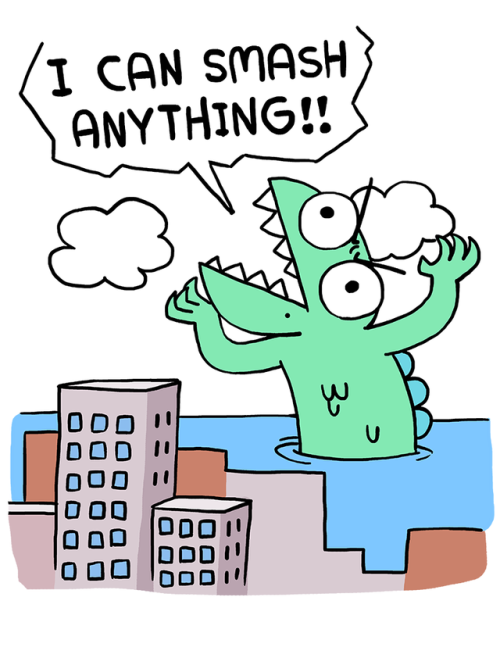
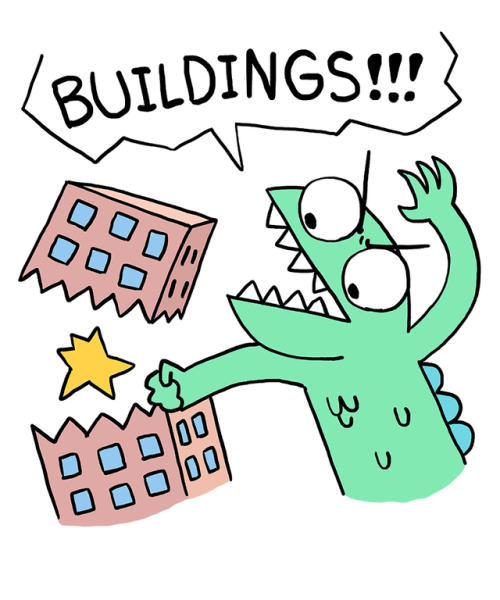
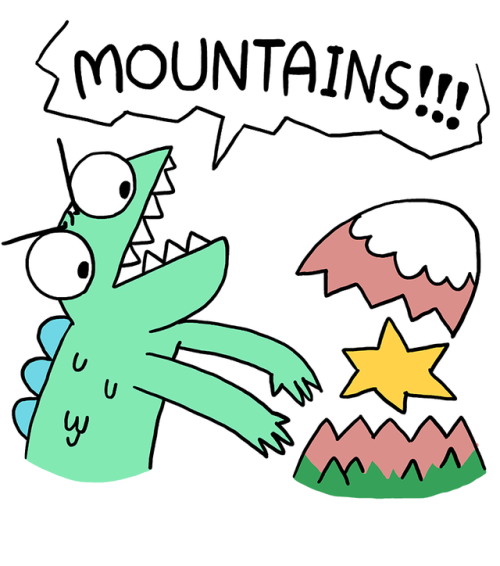

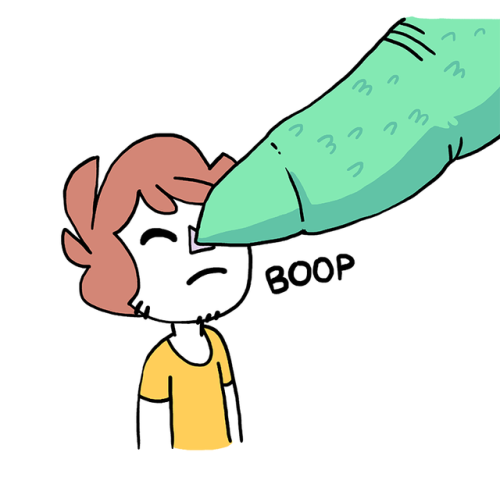
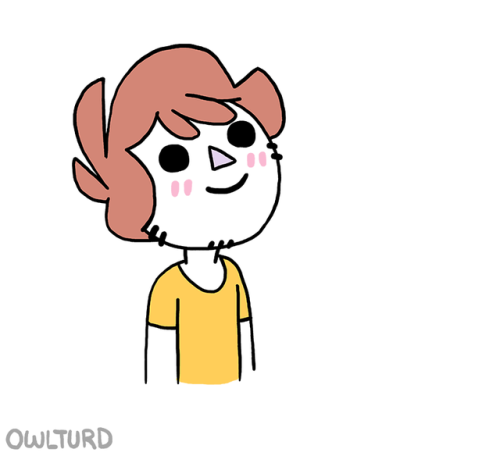
For sharing:
Long-ways | Box-ways



jealousy // marina & the diamonds photos by @mylastnameiscuadrado
Japanese Numbers

Hundreds (100, 200, 300 so on)
100 is 百 (sen) and as what happened with 10 十 (juu). To say 200, 300, 400 and so on, you simply put the number before it. Pattern: number + 百 (hyaku) 200 is 二百 500 is 五百 Take note about the irregulars in hundreds though. There are 3 of them 300 is 三百 san byaku 600 is 六百 roppyaku 800 is 八百 happyaku What happened here is 6 and 8 are contracted and the ひ (hi) in ひゃく is turned into ぴ (pi) and び (bi). Irregular number like this will show up a lot when counting things. But you will get to remember them the more you use it.
…………………………………………
Thousand (1000, 2000, so on)
1000 is 千 (sen). The pattern is similar to tens and hundreds. 2000 is 二千 ni sen 8000 is 八千 hachi sen Things to note: 4000 is ALWAYS yon sen 7000 is ALWAYS nana sen Irregulars: 3000 is 三千 san zen 8000 is 八千 hassen
…………………………………………
Ten Thousands
10.000 is 一万 (ichi man). Unlike 十(10), 百 (100) and 千 (1000), you need to mentioned the 一 (ichi) to say 10.000 Simply replace the 一 (ichi) with another number you want to say. There are no irregulars in ten thousands :D 20.000 is 二万 ni man 50.000 is 五万 go man Things to note: 40000 is ALWAYS yon man 70000 is ALWAYS nana man
Check the full article to learn how to count the in between.
Happy learning °˖✧◝(⁰▿⁰)◜✧˖°
…………………………………………
Useful Links:
• CrunchyNihongo - Easy to Learn Japanese Lessons Site • Get our easy Japan lessons on your facebook timeline • FREE DOWNLOAD! Resourceful app to start learning Japanese! • Books to guide & help you learn Japanese
Synonyms For Very
This masterlist is a masterlist of words that you may use alongside the word very, very being one of the most common words that are used when writing. I hope this helps you as much as it helps me in our writing seem more sophisticated and unique.
A:
Very accurate - exact Very afraid - fearful Very angry - furious Very annoying - exasperating
B:
Very bad - atrocious Very beautiful - exquisite Very big - immense Very boring - dull Very bright - luminous Very busy - swamped
C:
Very calm - serene Very careful - cautious Very cheap - stingy Very clean - spotless Very clear - obvious Very clever - intelligent Very cold - freezing Very colourful - vibrant Very competitive - cutthroat Very complete - comprehensive Very confused - perplexed Very conventional - conservative Very creative - innovative Very crowded - bustling Very cute - adorable
D:
Very dangerous - perilous Very dear - cherished Very deep - profound Very depressed - despondent Very detailed - meticulous Very different - disparate Very difficult - arduous Very dirty - filthy Very dry - arid Very dull - tedious
E:
Very eager - keen Very easy - effortless Very empty - desolate Very excited - thrilled Very exciting - exhilarating Very expensive - costly
F:
Very fancy - lavish Very fast - swift Very fat - obese Very friendly - amiable Very frightened - alarmed Very frightening - terrifying Very funny - hilarious
G:
Very glad - overjoyed Very good - excellent Very great - terrific
H:
Very happy - ecstatic Very hard - difficult Very hard-to-find - rare Very heavy - leaden Very high - soaring Very hot - sweltering Very huge - colossal Very hungry - ravenous Very hurt - battered
I:
Very important - crucial Very intelligent - brilliant Very interesting - captivating
J:
K:
L:
Very large - huge Very lazy - indolent Very little - tiny Very lively - vivacious Very long - extensive Very long-term - enduring Very loose - slack Very loud - thunderous Very loved - adored
M:
Very mean - cruel Very messy - slovenly
N:
Very neat - immaculate Very necessary - essential Very nervous - apprehensive Very nice - kind Very noisy - deafening
O:
Very often - frequently Very old - ancient Very old-fashioned - archaic Very open - transparent
P:
Very painful - excruciating Very pale - ashen Very perfect - flawless Very poor - destitute Very powerful - compelling Very pretty - beautiful
Q:
Very quick - rapid Very quiet - hushed
R:
Very rainy - pouring Very rich - wealthy
S:
Very sad - sorrowful Very scared - petrified Very scary - chilling Very serious - grave Very sharp - keen Very shiny - gleaming Very short - brief Very shy - timid Very simple - basic Very skinny - skeletal Very slow - sluggish Very small - petite Very smart - intelligent Very smelly - pungent Very smooth - sleek Very soft - downy Very sorry - apologetic Very special - exceptional Very strong - forceful Very stupid - idiotic Very sure - certain Very sweet - thoughtful
T:
Very talented - gifted Very tall - towering Very tasty - delicious Very thirsty - parched Very tight - constricting Very tiny - minuscule Very tired - exhausted
U:
Very ugly - hideous Very unhappy - miserable Very upset - distraught
V:
W:
Very warm - hot Very weak - frail Very well-to-do - wealthy Very wet - soaked Very wide - expansive Very willing - eager Very windy - blustery Very wise - sage Very worried - distressed
X:
Y:
Z:
A/N: If you know of anymore words I can add please message me.





Wandered into an article with 140 iconic cinematic shots, the comments complained there was no explanation to their composition. Decided to give it a run down and keep it to myself.
The compositions are mostly self explanatory but I wanted to see what patterns I could find. That’s just how you learn stuffs.
If a person wants to be a part of your life, they will make an obvious effort to do so. Think twice before reserving a space in your heart for people who do not make an effort to stay.
marcandangel.com (via onlinecounsellingcollege)
If you can dream it, you can be it. If you can see it in your mind, you can most definitely see it in your reality. There is no difference between dreams and reality except for the actions required to take you from where to currently are to where it is that you wish to go.
Nicole Addison @thepowerwithin (via thepowerwithin)

Komatsubara ga Koibito ni Naritasou ni Kochira o Miteiru!
See, the problem with people who aren’t in wheelchairs writing about and/or drawing people who are in (manual) wheelchairs is that the people who aren’t in wheelchairs tend to think that there’s only like four movements that you do in a wheelchair. You can either push forward, push backwards, turn left, or turn right. And the characters do it all while sitting up straight or bending forward so that their noses touch their knees.
But the amount of motions that I go through on a daily basis are actually amazing. And the body language…you could write an entire book on the body language of someone in a wheelchair.
Like right now, I’m more relaxed, so I’m slouching slightly. I’ve got my right foot on its footrest and the left foot on the ground. Every so often, as I stop to think of something to say, I’ll push with my left foot to rock the chair slightly.
But usually, I sit mostly upright with my upper-half slightly leaned forward. When I’m wheeling across the campus, especially if I have somewhere that I need to be, I’ll lean and shift my weight in whichever direction it is that I’m going. It helps make the wheelchair glide that much more smoothly. How far/dramatically I lean depends on how fast I’m going, the terrain, if there’s a turn, etc.
Plus people who don’t use wheelchairs don’t understand the relationship between grabbing the wheels, pushing, and the chair moving. Like I’ve seen things written or have seen people try to use a chair where the character/that person grabs the wheel every single second and never lets go to save their lives. Which isn’t right. The key is to do long, strong, pushes that allow you to move several feet before repeating. I can usually get about ten feet in before I have to push again. It’s kind of like riding a scooter. You don’t always need to push. You push, then ride, then push, then ride, etc.
And because of this, despite what many people think, people in wheelchairs can actually multitask. I’ve carried Starbucks drinks across the campus without spilling a single drop. Because it’s possible to wheel one-handed (despite what most people think), especially when you shift your weight. And if I need to alternate between pushing both wheels, I’ll just swap hands during the ‘glide’ time.
I’ve also noticed that people who don’t use wheelchairs, for some reason, have no idea how to turn a wheelchair. It’s the funniest thing. Like I see it written or, again, have seen people ‘try’ a wheelchair where they’re reaching across their bodies to try to grab one wheel and push or they try to push both wheels at the same time and don’t understand. (For the record, you pull back a wheel and push a wheel. The direction that you’re going is the side that you pull back.)
Back to body language. Again, no idea why most people think that we always sit upright and nothing else. Maybe when I’m in meetings or other formal settings, but most of the time, I do slightly slouch/lean. As for the hands…A lot of writers put the wheelchair user’s hands on the armrests but the truth is, most armrests sit too far back to actually put your hands on. There are times when I’ll put my elbows on the edges of the armrests and will put my hands between my legs. Note: Not on my lap. That’s another thing that writers do but putting your hands in your lap is actually not a natural thing to do when you’re in a wheelchair, due to the angle that you’re sitting and the armrests. Most of the time, I’ll just sort of let my arms loosely fall on either side of the chair, so that my hands are next to my wheels but not grabbing them. That’s another form of body language. I’ve talked to a few people who have done it and I do it myself. If I’m ever anxious or in a situation where I want to leave for one reason or another, I will usually grip my handrims - one hand near the front , one hand near the back. And if I’m really nervous, you’ll find me leaning further and further into the chair, running my hands along the handrims.
Also, on a related subject - a character’s legs should usually be at 90 degree angles, the cushion should come to about their knees, and the armrests should come to about their elbows. You can always tell that an actor is not a wheelchair user when their wheelchair isn’t designed to their dimensions. (Their knees are usually inches away from the seats and are up at an angle, the armrests are too high, etc.) Plus they don’t know how to drive the chair.
Let’s see, what else? Only certain bags can go on the back of the chair without scraping against the wheels, so, no, your teenagers in wheelchairs can’t put their big, stylish, purses on the back. We don’t always use gloves since most gloves actually aren’t that helpful (as stated above, wheeling is a very fluid motion and gloves tend to constrict movements). Height differences are always a thing to remember. If you’re going for the “oh no, my wheelchair is broken” trope, nobody really has ‘flat’ tires anymore thanks to the new material for the wheels but it is possible to have things break off. We use the environment a lot. I always push off of walls or grab onto corners or kick off of the floor etc. Wheelchair parkour should really become a thing.
This is all of the physical things to think about. I could write a thesis on the emotional treatment of your characters with disabilities. But for now, I think that I’ll stop here. For my followers in wheelchairs, is there anything that I left out?
Also why isn’t wheelchair parkour a thing? Somebody make wheelchair parkour a thing.

Ma Beagle and the Beagle Boys rough for the new Ducktales reboot opener
Six simple rituals: 1. Drink a glass of water when you wake up. Your body loses water while you sleep, so you’re naturally dehydrated in the morning. A glass of water when you wake helps start your day fresh. 2. Define your top 3. Every morning ask yourself, “What are the top three most important tasks that I will complete today?” Prioritizes your day accordingly and don’t sleep until the Top 3 are complete. 3. The 50/10 Rule. Solo-task and do more faster by working in 50/10 increments. Use a timer to work for 50 minutes on only one important task with 10 minute breaks in between. Spend your 10 minutes getting away from your desk, going outside, calling friends, meditating, or grabbing a glass of water. 4. Move and sweat daily. Regular movement keeps us healthy and alert. It boosts energy and mood, and relieves stress. 5. Express gratitude. Gratitude fosters happiness. Each morning, think of at least five things you’re thankful for. In times of stress, pause and reflect on these things. 6. Reflect daily. Bring closure to your day through 10 minutes of reflection. Asks yourself, “What went well?” and “What needs improvement?”
(via coyotegold)
Your Character’s Personality
Personality is the most important thing about your character.
So, whenever I see character sheets, most people just put a little paragraph for that section. If you’re struggling and don’t know what your character should say or do, what decisions they should make, I guarantee you that this is the problem.
You know your character’s name, age, race, sexuality, height, weight, eye color, hair color, their parents’ and siblings’ names. But these are not the things that truly matter about them.
Traits:
pick traits that don’t necessarily go together. For example, someone who is controlling, aggressive and vain can also be generous, sensitive and soft-spoken. Characters need to have at least one flaw that really impacts how they interact with others. Positive traits can work as flaws, too. It is advised that you pick at least ten traits
people are complex, full of contradictions, and please forgive me if this makes anyone uncomfortable, but even bullies can be “nice” people. Anyone can be a “bad” person, even someone who is polite, kind, helpful or timid can also be narcissistic, annoying, inconsiderate and a liar. People are not just “evil” or “good”
Beliefs:
ideas or thoughts that your character has or thinks about the world, society, others or themselves, even without proof or evidence, or which may or may not be true. Beliefs can contradict their values, motives, self-image, etc. For example, the belief that they are an awesome and responsible person when their traits are lazy, irresponsible and shallow. Their self-image and any beliefs they have about themselves may or may not be similar/the same. They might have a poor self-image, but still believe they’re better than everybody else
Values:
what your character thinks is important. Usually influenced by beliefs, their self-image, their history, etc. Some values may contradict their beliefs, wants, traits, or even other values. For example, your character may value being respect, but one of their traits is disrespectful. It is advised you list at least two values, and know which one they value more. For example, your character values justice and family. Their sister tells them she just stole $200 from her teacher’s wallet. Do they tell on her, or do they let her keep the money: justice, or family? Either way, your character probably has some negative feelings, guilt, anger, etc., over betraying their other value
Motives:
what your character wants. It can be abstract or something tangible. For example, wanting to be adored or wanting that job to pay for their father’s medication. Motives can contradict their beliefs, traits, values, behavior, or even other motives. For example, your character may want to be a good person, but their traits are selfish, manipulative, and narcissistic. Motives can be long term or short term. Everyone has wants, whether they realize it or not. You can write “they don’t know what they want,” but you should know. It is advised that you list at least one abstract want
Recurring Feelings:
feelings that they have throughout most of their life. If you put them down as a trait, it is likely they are also recurring feelings. For example, depressed, lonely, happy, etc.
Self Image:
what the character thinks of themselves: their self-esteem. Some character are proud of themselves, others are ashamed of themselves, etc. They may think they are not good enough, or think they are the smartest person in the world. Their self-image can contradict their beliefs, traits, values, behavior, motives, etc. For example, if their self-image is poor, they can still be a cheerful or optimistic person. If they have a positive self-image, they can still be a depressed or negative person. How they picture themselves may or may not be true: maybe they think they’re a horrible person, when they are, in fact, very considerate, helpful, kind, generous, patient, etc. They still have flaws, but flaws don’t necessarily make you a terrible person
Behavior:
how the character’s traits, values, beliefs, self-image, etc., are outwardly displayed: how they act. For example, two characters may have the trait “angry” but they all probably express it differently. One character may be quiet and want to be left alone when they are angry, the other could become verbally aggressive. If your character is a liar, do they pause before lying, or do they suddenly speak very carefully when they normally don’t? Someone who is inconsiderate may have issues with boundaries or eat the last piece of pizza in the fridge when they knew it wasn’t theirs. Behavior is extremely important and it is advised you think long and hard about your character’s actions and what exactly it shows about them
Demeanor:
their general mood and disposition. Maybe they’re usually quiet, cheerful, moody, or irritable, etc.
Posture:
a secondary part of your character’s personality: not as important as everything else. It is advised you fill this out after. Posture is how the character carries themselves. For example, perhaps they swing their arms and keep their shoulders back while they walk, which seems to be the posture of a confident person, so when they sit, their legs are probably open. Another character may slump and have their arms folded when they’re sitting, and when they’re walking, perhaps they drag their feet and look at the ground
Speech Pattern:
a secondary part of your character’s personality: not as important as everything else. It is advised you fill this out after. Speech patterns can be words that your character uses frequently, if they speak clearly, what sort of grammar they use, if they have a wide vocabulary, a small vocabulary, if it’s sophisticated, crude, stammering, repeating themselves, etc. I personally don’t have a very wide vocabulary, if you could tell
Hobbies:
a secondary part of your character’s personality: not as important as everything else. It is advised you fill this out after. Hobbies can include things like drawing, writing, playing an instrument, collecting rocks, collecting tea cups, etc.
Quirks:
a secondary part of your character’s personality, not as important as everything else. It is advised you fill this out after. Quirks are behaviors that are unique to your character. For example, I personally always put my socks on inside out and check the ceiling for spiders a few times a day
Likes:
a secondary part of your character’s personality, not as important as everything else. It is advised you fill this out after. Likes and dislikes are usually connected to the rest of their personality, but not necessarily. For example, if your character likes to do other people’s homework, maybe it’s because they want to be appreciated
Dislikes:
a secondary part of your character’s personality, not as important as everything else. It is advised you fill this out after. Likes and dislikes can also contradict the rest of their personality. For example, maybe one of your character’s traits is dishonest, but they dislike liars
History:
your character’s past that has key events that influence and shape their beliefs, values, behavior, wants, self-image, etc. Events written down should imply or explain why they are the way they are. For example, if your character is distrustful, maybe they were lied to a lot by their parents when they were a child. Maybe they were in a relationship for twenty years and found out their partner was cheating on them the whole time. If their motive/want is to have positive attention, maybe their parents just didn’t praise them enough and focused too much on the negative
On Mental and Physical Disabilities or Illnesses
if your character experienced a trauma, it needs to have an affect on your character. Maybe they became more angry or impatient or critical of others. Maybe their beliefs on people changed to become “even bullies can be ‘nice’ people: anyone can be a ‘bad’ person”
people are not their illness or disability: it should not be their defining trait. I have health anxiety, but I’m still idealistic, lazy, considerate, impatient and occasionally spiteful; I still want to become an author; I still believe that people are generally good; I still value doing what make me feel comfortable; I still have a positive self-image; I’m still a person. You should fill out your character’s personality at least half-way before you even touch on the possibility of your character having a disability or illness
Generally everything about your character should connect, but hey, even twins that grew up in the same exact household have different personalities; they value different things, have different beliefs. Maybe one of them watched a movie that had a huge impact on them.
Not everything needs to be explained. Someone can be picky or fussy ever since they were little for no reason at all. Someone can be a negative person even if they grew up in a happy home.
I believe this is a thought out layout for making well-rounded OCs, antagonists and protagonists, whether they’re being created for a roleplay or for a book. This layout is also helpful for studying Canon Characters if you’re looking to accurately roleplay as them or write them in fanfiction or whatever.
I’m really excited to post this, so hopefully I didn’t miss anything important…
If you have any questions, feel free to send a message.
- Chick
Studio Ghibli vocabulary in German

Studio Ghibli - Studio Ghibli das Zeichentrickfilmstudio - animation studio der Regisseur - director (male) die Regisseurin - director (female) der Produzent - producer (male) die Produtzentin - producer (female) der Drehbuchautor - screenwriter (male) die Drehbuchautorin - screenwriter (female) der Comiczeichner - comic artist (male) die Comiczeichnerin - comic artist (female) der Cutter - editor (male) die Cutterin - editor (female) der Komponist - composer (male) die Komponistin - composer (female) der Film - film der Anime - anime der Zeichenrtickfilm - animation Nausicaä aus dem Tal der Winde - Nausicaä of the Vally of the Wind Das Schloss im Himmel - Castle in the Sky Die letzten Glühwürmchen - The Grave of the Fireflies Kikis kleiner Lieferservice - Kiki’s Delivery Service Tränen der Erinnerung – Only Yesterday Porco Rosso - Porco Rosso Flüstern des Meeres - Ocean Waves Pom Poko - Pom Poko Stimme des Herzes - Whisper of the Heart Prinzessin Mononoke - Princess Mononoke Meine Nachbarn die Yamadas - My Neighbours the Yamadas Chihiros Reise ins Zauberland - Spirited Away Das Königreich der Katzen - The Cat Returns Die wandelende Schloss - Howl’s Moving Castle Die Chroniken von Erdsee - Tales from Earthsee Ponyo - Die Abenteuer am Meer - Ponyo Arrietty – Die wundersame Welt der Borger - Arrietty Der Mohnblumenberg - From Up on Poppy Hill Wie der Wind sich hebt - The Wind Rises Die Legende der Prinzessin Kaguya - The Tale of the Princess Kaguya Erinnerungen an Marnie - When Marnie Was There
Translated from @blackteaandlanguages Studio Ghibli vocabulary in Finnish

Are you stuck figuring out a personality for a bio? Or are you dying to join an OC RP, but find yourself unable to create a character? Well, this is the guide for you!
A reminder:
Sometimes it might feel like you’ve been standing in one place forever or you took a huge step backward, but try to remember that you write because you love to write. You might not have any books published, or an agent, or a publishing contract, but hopefully you’re working on something that means a lot to you. No matter what, no one can take that away from you. People might hate your writing or criticize you, but please don’t let that stop you.
Keep writing because it makes you happy.

Some writing sins to keep in mind when writing your novel!